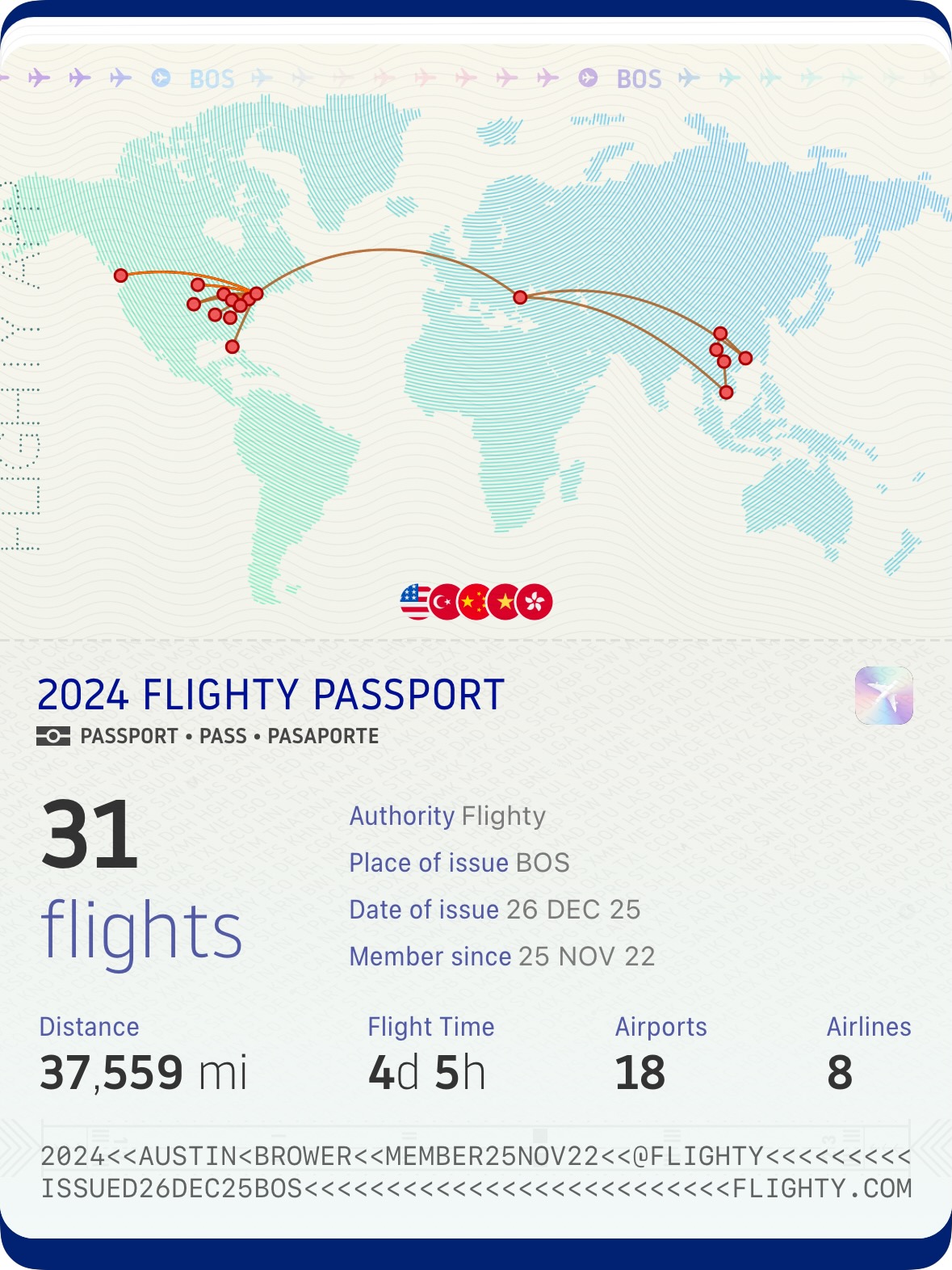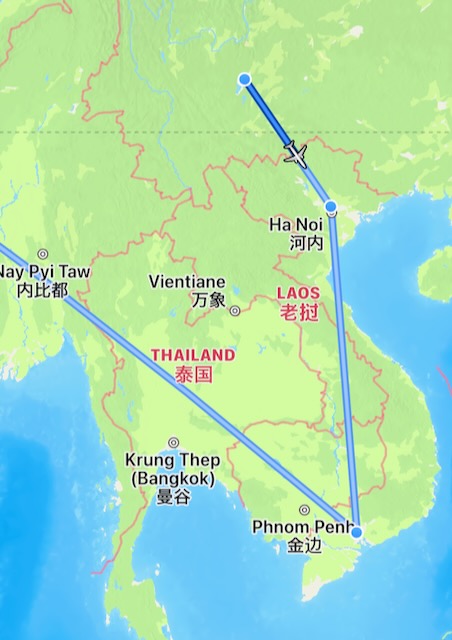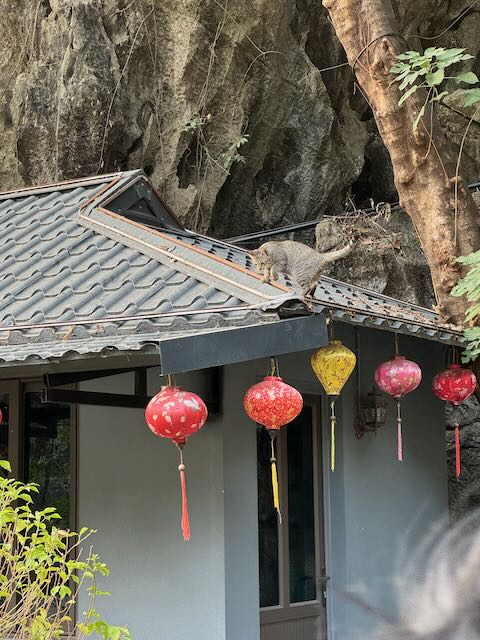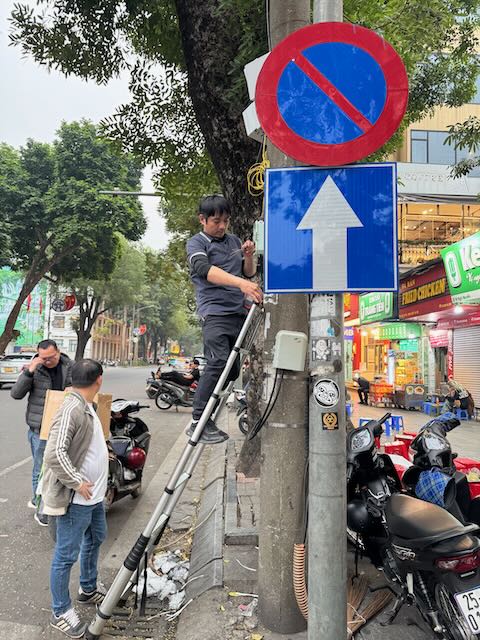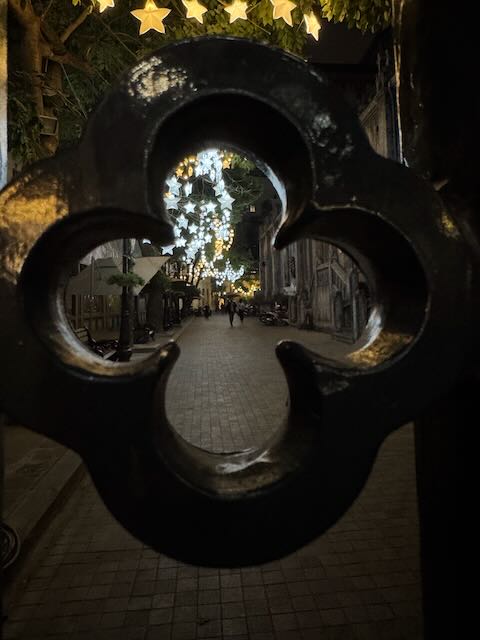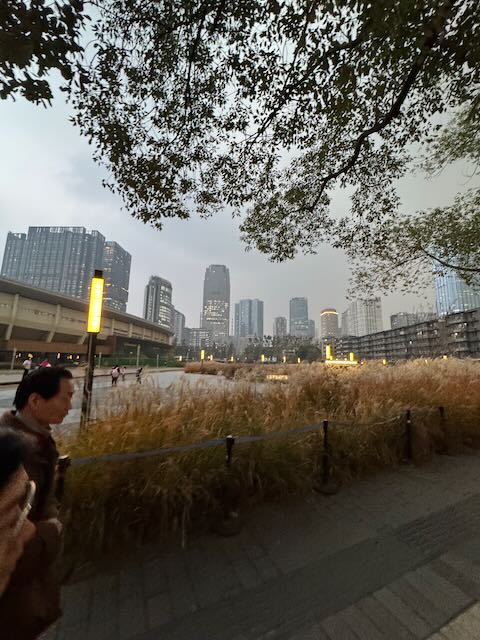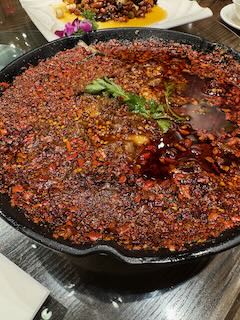My friend Trent taught English in Taiwan for many years and consistently reiterated how LGBTQ+ friendly and amazing Taipei is, so visiting has been on my Asia to-visit for many years. 2025 was the year for the visit. This is the second big Asia trip in the past two years and every one has been emotionally powerful, challenging (due to jet lag and long flights), and educational.
The journey to Taiwan from the east coast of the United States can be onerous, with very long flights. This time, we went west, from Boston to Seattle and then onward after a reasonable layover. Chasing the sun, there was an endless sunset ahead of us as we cross the United States. There's a certain magic to watching those colors shift from above the clouds as I drifted in and out of sleep.
I slept well the night of our arrival in the city and the morning of the first full day in Taipei was dominated by a visit to the Chiang Kai-Shek Memorial Hall. Set in a large park, the memorial hall is imposing and beautiful, but almost austere. As we went down into the body of the building, we found it was full of historical and modern galleries encompassing key artifacts from Kai-Shek's time, exhibits that explored democratic movements across the world, and works from modern artists. This multi-use nature is far more appealing than a monument solely dedicated to one man and his complicated legacy.
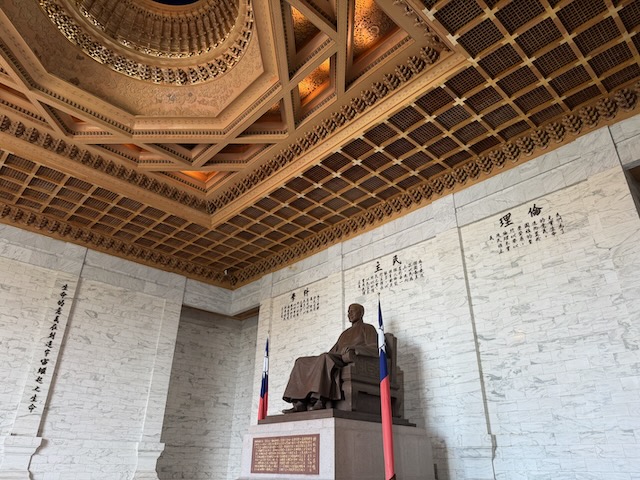
Outside the hall, every hour from 0900 to 1700, there is currently a military honor guard "changing of the guard" ceremony. This is a change since 2024, as in the past the honor guard was stationed inside the memorial hall itself. The Ministry of Culture initiated these changes to reduce the so-called "cult of personality" aspects of the Memorial Hall and surrounding complex. I'm hopeful the U.S. will be able to do the same thing after the current administration turns over; to me, one of the most touching and important military honor guards is at the Tomb of the Unknown Soldier. It shows the importance and power of the people, the unknown, and rejects cult of personality of the powerful, the monied, and the proud.
In Flowers of Freedom, I learned far more about freedom, democracy, and free speech movements in Taiwan and across the world than I had expected at a monument to a former military and autocratic leader. The most resonant message was that freedom is fragile and that it takes ongoing struggle and sacrifice to retain and expand the freedoms that people have fought to win. Every person must fight for these things, the struggle is ours, not theirs. The story of Nylon Cheng, editor of Freedom Era Weekly, and his struggle against the KMT authoritarian bent is told most poignantly accompanied by a reconstruction of his office where he self-immolated. His self-immolation connected me to the freedom movements of South Korea, which I had been reading about in The Old Garden by Hwang Sok-yong, and elsewhere in the exhibit the Gwangju Uprising from 1980 was incorporated as an example of horrifying events that were part of repressive state responses to democratization and freedom movements.
Sam Enright wrote in more depth about the complex interplay of movements, language, culture, and more and touched upon similar topics in his reflections.
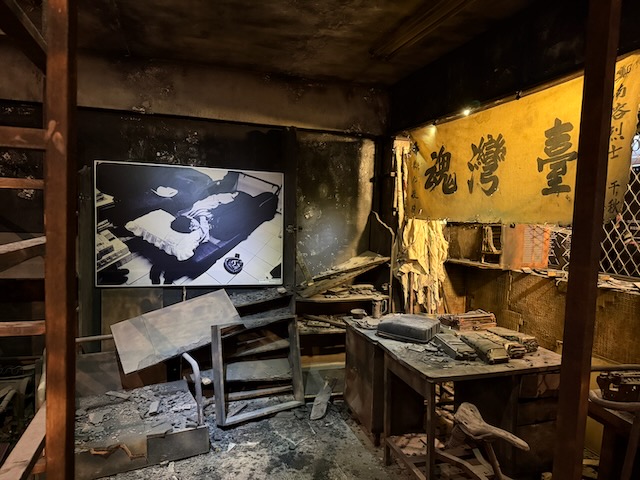
In the U.S., there are many museums and monuments that celebrate freedom of speech, the freedom of peoples (via the Emancipation Proclamation, the Freedom Riders, and more), and the other freedoms enshrined in the Constitution. Right now, it feels like those stories are told as distant past, as recognition of accomplishments, and less like stories of an ongoing struggle. The Flowers of Freedom exhibition truly felt like now, where every person is invited and required to participate in the ongoing work of fighting for freedom.

I wrote earlier this year about staying open to connection, and part of this trip was an overlap with our friend David, who was coming back from mainland China and Vietnam. We met up for lunch, then headed into a period of wandering — from bookstore (Whose Books) to coffeeshop (Modish) to bookstore to Ningxia night market. Along the way, David invited his friend David to join us… And we all connected via our mutual interests, our excitement on being in Taiwan, sharing bits of our histories, and more.
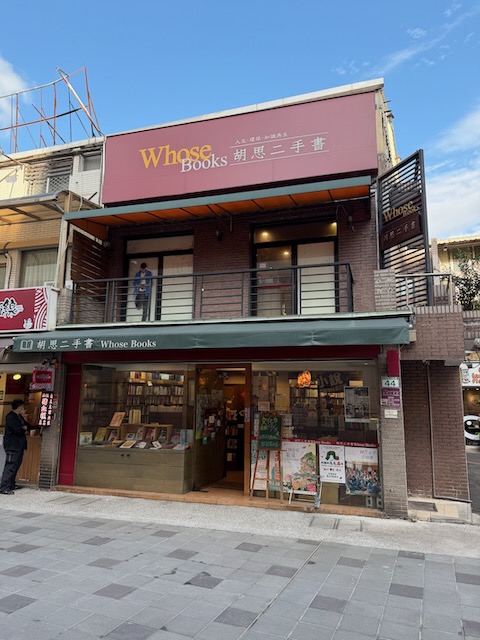
At Ningxia night market, I tried stinky tofu (the Taiwanese kind) for the first time. I tried it two ways (fried and in a spicy soup), stealing a bit from David's bowl. My key learning from the fried stinky tofu: don't keep chewing, just swallow it. The stinky tofu in spicy soup was tolerable, but not enjoyable. My palette will take time to mature. And maybe never develop a taste for it. Who knows!
David II (he told us to call him Jamaican David) had recently moved to Taipei to teach English after a stint in government and in the private sector. Similar to Trent's time in Taipei, David II is teaching in a private "cram school" and adjusting to the reality that he knows a tiny amount of Mandarin. As a new arrival to Taipei, he was certainly still using his tourist eyes and exploring the city and the country as much as he could.
I have much more to write about night markets and the type of built environment that exists (and is seemingly encouraged to exist) in the Asian cities I've visited.
We had plans for the next day, though, and said goodnight to the Davids and headed back to Beitou to rest.

